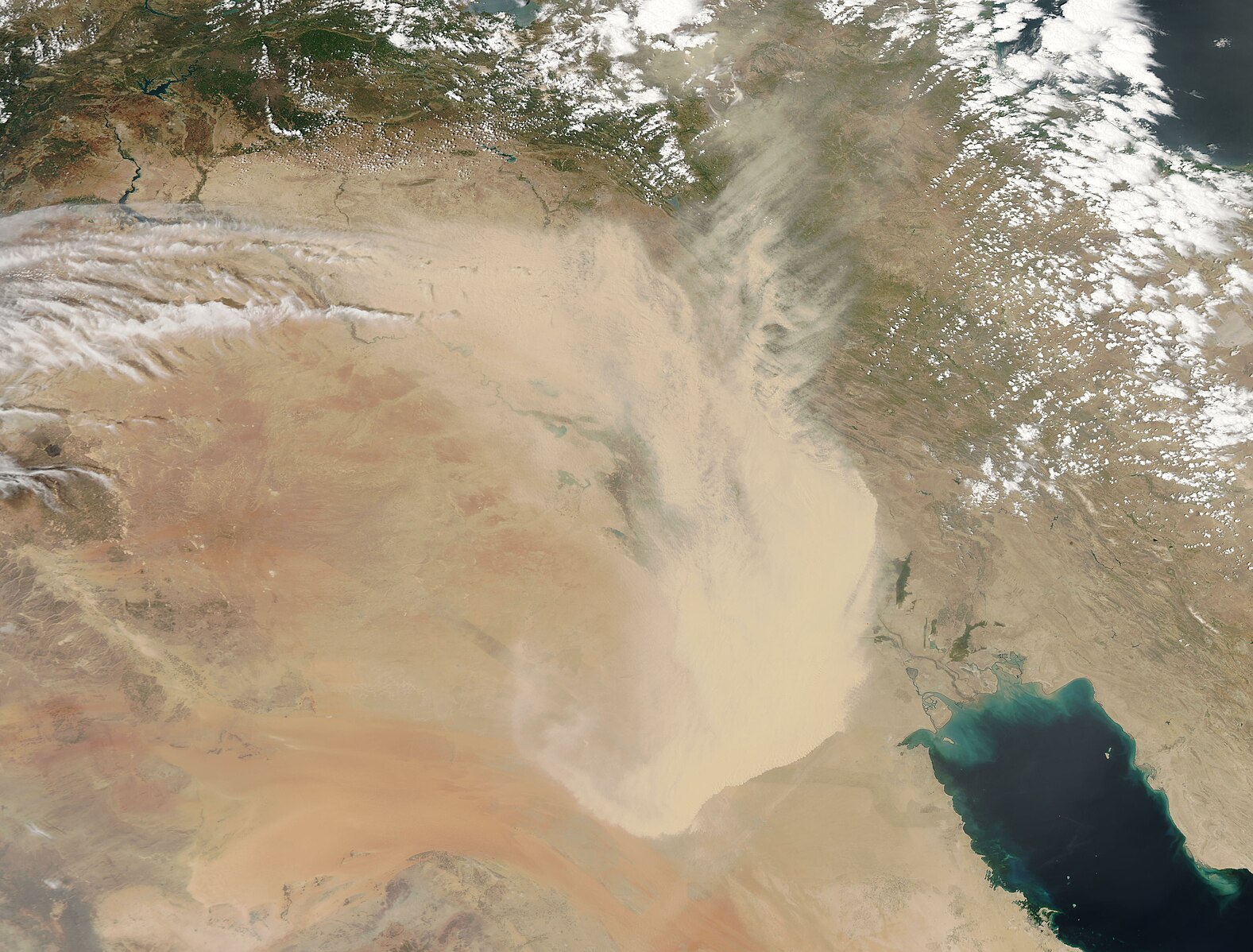
Inland Sea Reflooding
The inland sea reflooding project is examining the reflooding potential for inland depressions such as the Qattara depression in Western Egypt. The depression could hold roughly 1k cubic km, reducing global sea levels by about 3mm, and, because of the region’s heat, evaporation from the sea would further slow expected sea-level rise by as much as 5%. There may be as many as 5-10 other depressions in the world that could be re-flooded to mitigate sea-level rise in similar fashion. These projects could also bring significant additional local co-benefits, including environmental, economic, and clean energy.
Program Personnel

Amir AghaKouchak
Fellow
Read more
Amir AghaKouchak is a Professor of Civil and Environmental Engineering and Earth System Science at the University of California, Irvine. He is the Lead for Water, Climate and Infrastructure Risk at the United Nations University-Institute for Water Environment and Health (UNU-INWEH). His research focuses on natural hazards and climate extremes and crosses the boundaries between hydrology, climatology, and remote sensing. Amir has published 260 peer-reviewed research articles in scientific journals. He has received several honors and awards including the American Geophysical Union’s James B. Macelwane Medal, Fellow of AGU, and the American Society of Civil Engineers (ASCE), Norman Medal and ASCE Huber Research Prize.
Seed Grants
ARC’s Seed grants will provide early-stage funding to catalyze promising ideas addressing catastrophic climate risks.
ARC Seed grants support promising ideas with exploratory efforts, scoping studies, concept development, early-stage research, and small pilot projects, to help develop and refine innovative concepts or unblock initial barriers.
Timeline: ARC Seed grants are provided for 3-6 month engagements.
Grant Amount: ARC’s Seed grants generally provide $30–100K in funding as well as deep engagement on project design and strategy.
Turn your climate ideas into actionable programs.
Apply for a Seed Grant.
-
Inland Sea Reflooding
Amir AghaKouchak
2024–2025
-
Tracking Tropospheric Sulphur
Colleen Golja, Christina Last, Carla Roesch
2025
-
Undercurrent
Kelly Kinetic, Shaun Kinetic, Lauren Murray, Lea Eaton
2025
-
Enhancing Global South Capacity to Address Climate Emergencies
Rose Mutiso
2025
-
Planning for Catastrophic Climate Risk
Luke Kemp
2025
-
Carbon Removal as a National Security Imperative
Noah Deich
2025
-
AI-Powered Social Science for Climate Emergencies Research
Allegra Cohen
2025
-
The Arctic Climate Emergency Response (ACER) Initiative
Charlotte DeWald
2025
-
The Climate Emergencies Resilience Lab
Deep Sciences Ventures
2025
Build Grants
ARC’s Build grants will enable leaders to turn promising concepts into actionable programs.
ARC Build grants support the development of independent organizations or partnerships with existing entities, focusing on activities such as program planning, roadmapping, early implementation, and organizational development.
Timeline: ARC Build grants are provided for 6-month to 1-year engagements.
Grant Amount: ARC’s Build grants generally provide $100-400k in funding as well as strategic and operational support, and a variety of technical expertise.
Turn your climate ideas into actionable programs.
Apply for a Build Grant.
-
Arête Glacier Initiative
Brent Minchew, Lauren Mahle
2024–2025
-
The Arctic Climate Emergency Response (ACER) Initiative
Charlotte DeWald
2025
Scale Partners
ARC’s Scale grants will empower our partner organizations to achieve significant impact by advancing key program objectives.
ARC’s Scale Partnerships provide targeted support to help organizations working on challenges aligned with ARC’s mission to enhance their efforts addressing climate risks.
In addition to resources, we offer technical expertise, strategic guidance for organizational growth and research, and hands-on support in fundraising and partnership development. By working closely with our partners, we ensure that promising initiatives are well-positioned to succeed and grow.
Get in touch
-
Reflective
Dakota Gruener, Doug MacMartin
2024–2025
-
Arête Glacier Initiative
Brent Minchew, Lauren Mahle
2024–2025